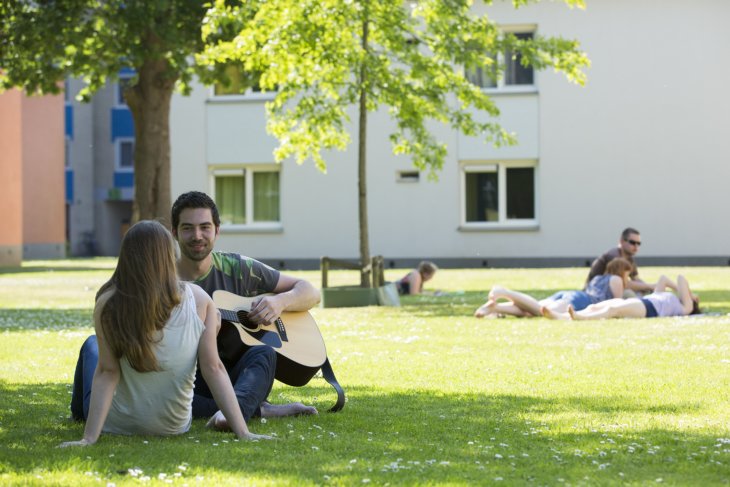In this article, we’ll mostly talk about Enschede and its surroundings, where finding housing is easier than in other major cities, but these strategies apply mostly everywhere in the Netherlands.
1. What will I be paying for?
Before anything else, it’s important to know what exactly you’ll be paying for, along with your rights as a tenant. In the Netherlands, you are very protected as a tenant – mainly in that you cannot simply be evicted or your rent be terminated, regardless of the reason (unless it is a very valid one), without giving notice and obtaining a court order. Read through whatever contract you’re offered, what exactly you’re paying for, whether there are any suspicious mandatory payments, and what the conditions for cancelling your contract are. Look for offers that allow you to register at the municipality, as housing that does not allow registration is usually a scam. Finally, do keep in mind: if it is too good to be true, it is probably not true. The full tenancy law manual can be read here, in English, and a couple of details can be found here, on an official government website.
2. Start early
As soon as you receive confirmation of your acceptance to the University of Twente, or any other Dutch university, start to look for housing. The University of Twente offers international, non-EEA students guaranteed housing for the first year. I recommend that you accept this offer, if only so that there will be time to search more easily once you’ve arrived and settled in. University housing, especially in your first year, can be helpful: the campus is basically its own little village, with sports facilities, shops, and a great sense of community all around. However, if you insist that you don’t want to live so close to where you’re studying, Xior is a popular place for international students (though a bit expensive), and usually has rooms available.
3. Explore housing platforms
If you’re a veteran student and ready to say goodbye to your room on campus, consider checking out the specialised student housing platforms such as Pararius and Kamernet. The university also offers more housing on Roomspot, as well as some places in the city and Hengelo. Gronau in Germany also has some places available, through platforms like HousingAnywhere, though some students tell me the commute is tiring. If you feel like you’d rather live alone and not share a bathroom, studios like in Xior or Plaza Resident Services on campus can be rented, though at a much higher price. I found my own room through Pararius, and although it is a bit far from campus, my living situation couldn’t be better.
4. Use your community!
Although it seems like a relic from the distant past, Facebook has helped some of my friends find their rooms in the city, using the university’s very own Facebook Marketplace. Many people offer rooms and studios in the city (very rarely do they offer anything on campus), and new listings appear almost every day. Facebook housing decisions are usually made by the posters and sometimes the landlord, as they’re looking for housemates that they can vibe and live comfortably with. Keep in mind that, as with any other platform, Facebook has its fair share of scammers, so while that may be daunting, don’t let it be the reason you squander in your search for housing.
Another place to consider is the housing group chat offered by ESN Twente, the Europe-wide student association at the university. People text the group every day looking for and offering housing, and scammers can usually be detected by the admins and banned moments later. Their housing guide is also very detailed, with everything you need and more on there.
Finally, make sure you remember who your friends are! Your network and community are sympathetic, and most have felt the pain and stress of not finding suitable housing on time, so don’t be afraid to ask for help! Many people I know personally have found their rooms through connections and friends.
5. Finally, some tips!
Once you find a place that suits you, it is always best to visit the place in person by arranging a viewing. Prepare questions for the landlord, such as whether the furniture is included or if there are any additional costs (gas, water, electricity). If you’re not available, find someone who is, such as a friend who’s living in the city or on dedicated communities like Reddit. Talk to previous tenants, if possible, to ask about their experience renting and why they left.




